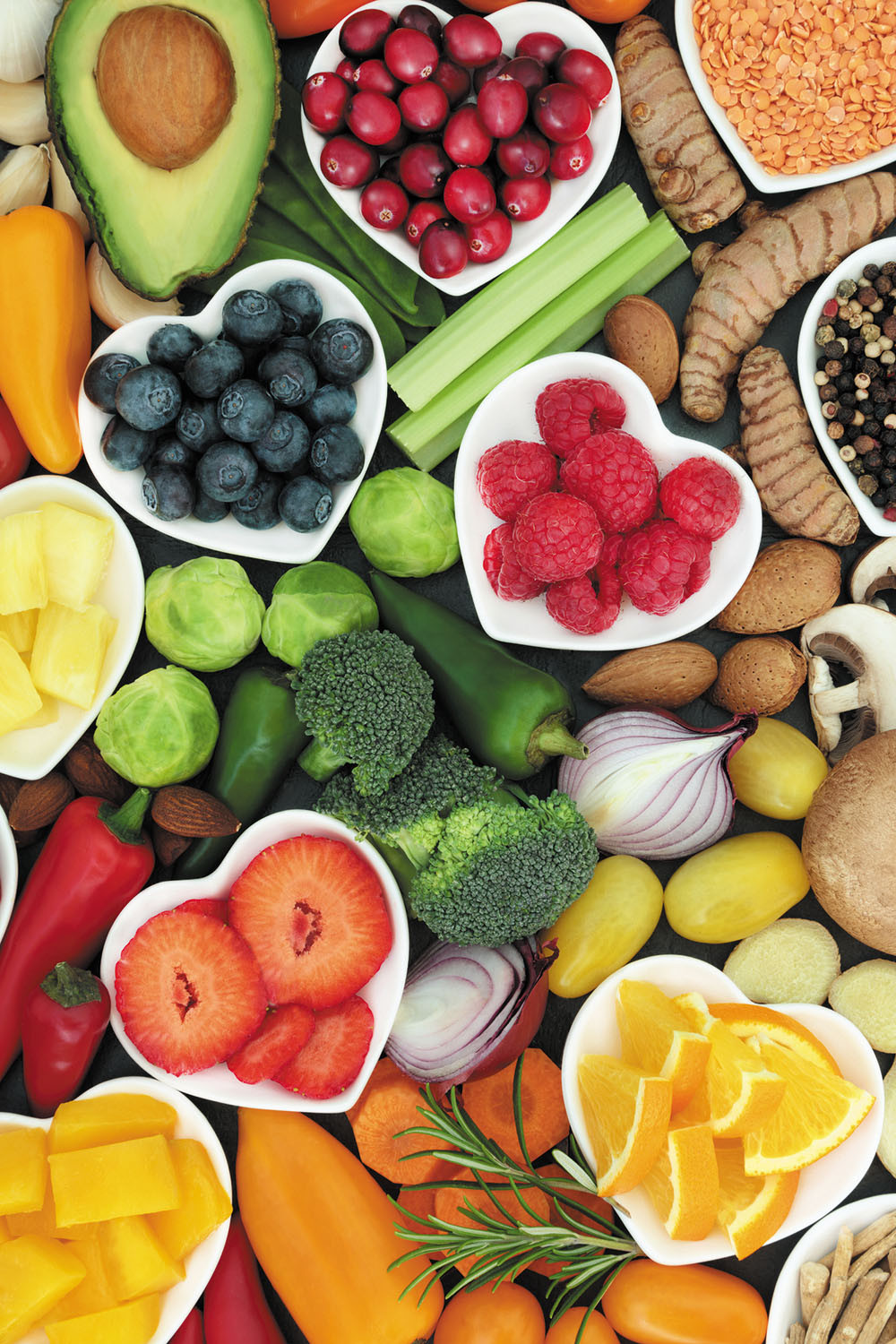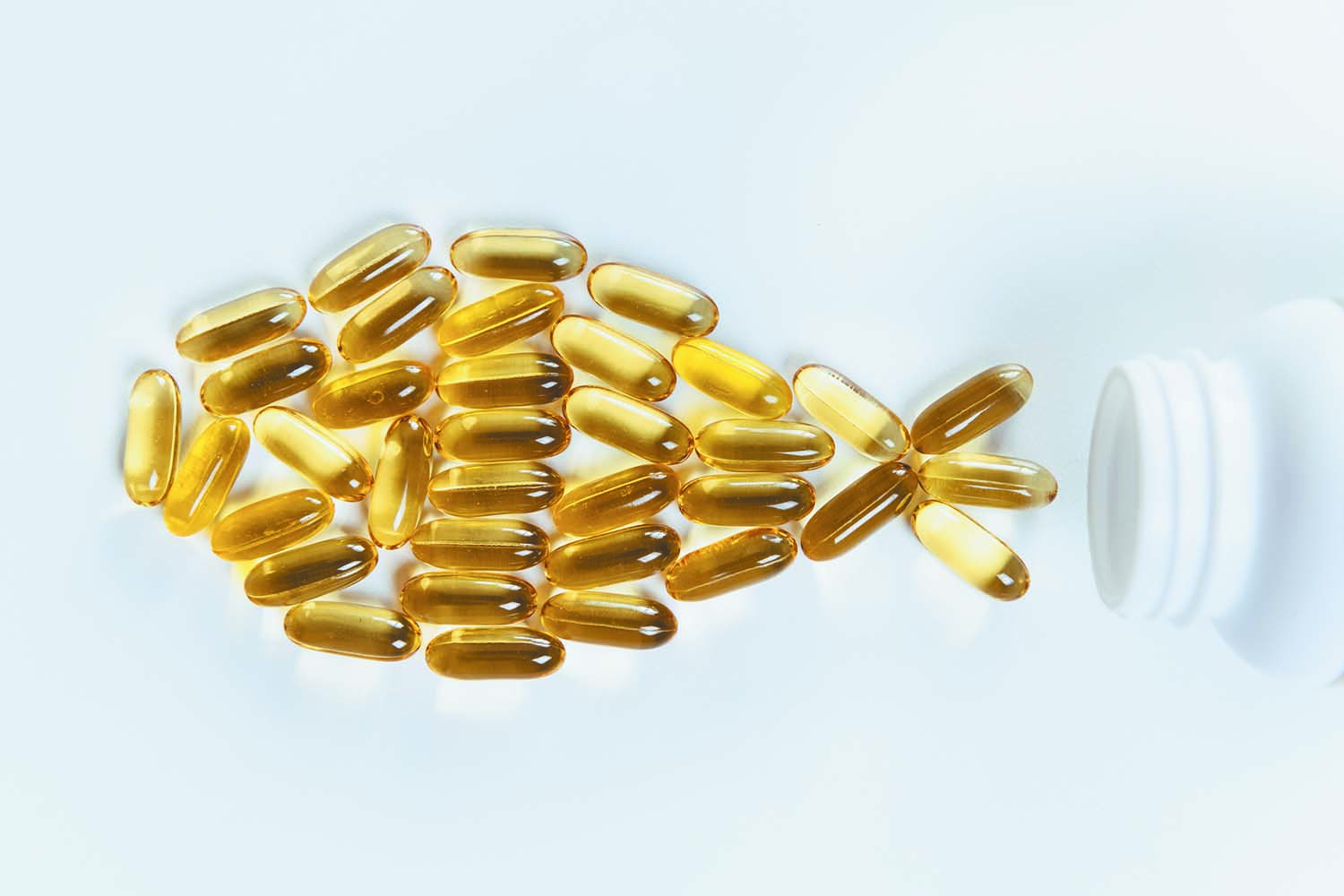
Respiratory health harms often follow flooding: Taking these steps can help

Tips to leverage neuroplasticity to maintain cognitive fitness as you age

Can white noise really help you sleep better?

Celiac disease: Exploring four myths

What is prostatitis and how is it treated?

What is Cushing syndrome?

Exercises to relieve joint pain

Think your child has ADHD? What your pediatrician can do

Foam roller: Could you benefit from this massage tool?

Stepping up activity if winter slowed you down
Nutrition Archive
Articles
By the way, doctor: What's the right amount of vitamin C for me?
I'm 79 years old and have been taking 3,000 mg of vitamin C a day for years. I'm now uneasy about taking this amount and plan to cut back to 1,000 mg daily. Is this the right dose? Will my body be startled by the abrupt change?
5 foods to eat to help your heart
While the focus is often on avoiding unhealthy foods, adding in nutritious options can be a means of protecting and improving your heart health. Olive oil, mixed nuts, multicolored fruits and vegetables, fatty fish, and sources of soluble fiber are options to try.
11 foods that can help lower your cholesterol
People with elevated LDL cholesterol values may be able to reduce their LDL levels by eating more foods that are rich in fiber and lower in saturated fats. High-fiber foods include whole grains, beans, nuts, vegetables, and fruits. Saturated fats are found mainly in meat, cheese, and other high-fat dairy products such as butter, half and half, and ice cream.
Should you try fasting?
Intermittent fasting means that people avoid food for a designated amount of time each day. One of the most popular approaches is called 16/8. People eat during an eight-hour period—for example from noon to 8 p.m.— followed by 16 hours of fasting, in this case from 8 p.m. until noon the next day, when the pattern repeats. While science does not yet know the long-term benefits of intermittent fasting, initial short-term research has suggested the practice may help lower cholesterol, blood pressure, and weight, among other health benefits.
The power of protein
During his lifetime, a man loses about 30% of his muscle mass. Older men can maintain and even regain muscle by combining regular weight training and a proper diet, including adequate amounts of protein. Research suggests that to help counter lost muscle mass, healthy older adults need 1.2 grams of protein for every kilogram of body weight per day. This is calculated by dividing a person's weight in pounds by 2.2 and then multiplying by 1.2.
Time to try intermittent fasting?
Intermittent fasting—a diet that focuses on when rather than what a person eats—may be a good way to lose weight and improve cardiovascular health. One version, time-restricted feeding, involves eating only during a certain time window (usually eight hours) over a single day; another approach limits a person to just 400 to 600 calories daily for several days over the course of a week. The diet may reduce risk factors linked to heart disease, including type 2 diabetes, high blood pressure, unhealthy blood lipid levels, and inflammation.
The questions about fish oil supplements
Some research says taking a daily fish oil supplement can reduce the risk of heart attacks and strokes, while other studies say the evidence remains thin. While fish oil is the best source of omega-3 fatty acids (essential nutrients that the body cannot make on its own), taking an over-the-counter fish oil supplement probably provides no extra heart benefit beyond a well-balanced diet that includes plenty of omega-3-rich fatty fish, nuts, and seeds.
Adopting a Mediterranean-style diet, one meal at a time
The Mediterranean diet is touted for its health benefits, which include a reduced risk of cardiovascular disease, cancer, and potentially even improvements to the gut bacteria, which may reduce harmful inflammation inside the body. Making some simple changes to your current diet can help improve your health. These include switching to olive oil as the primary fat, eating more whole grains and less processed food and sugar and reducing red meat consumption. Whenever possible, base your daily diet on a base of vegetables, fruits and plant-based options.
Sugar's not-so-sweet effects on the heart
A sugary diet contributes to weight gain and other factors that boost heart disease risk, including inflammation, disrupted blood sugar control, and increased cholesterol. The typical American diet is very high in added sugar, nearly half of which comes from sugar-sweetened beverages. Another 30% comes from baked goods such as cookies, brownies, cakes, pies, doughnuts, sweet rolls, and pastries. People don't need to completely give up sweet treats but should enjoy them just once or twice a week rather than daily.

Respiratory health harms often follow flooding: Taking these steps can help

Tips to leverage neuroplasticity to maintain cognitive fitness as you age

Can white noise really help you sleep better?

Celiac disease: Exploring four myths

What is prostatitis and how is it treated?

What is Cushing syndrome?

Exercises to relieve joint pain

Think your child has ADHD? What your pediatrician can do

Foam roller: Could you benefit from this massage tool?

Stepping up activity if winter slowed you down
Free Healthbeat Signup
Get the latest in health news delivered to your inbox!
Sign Up











